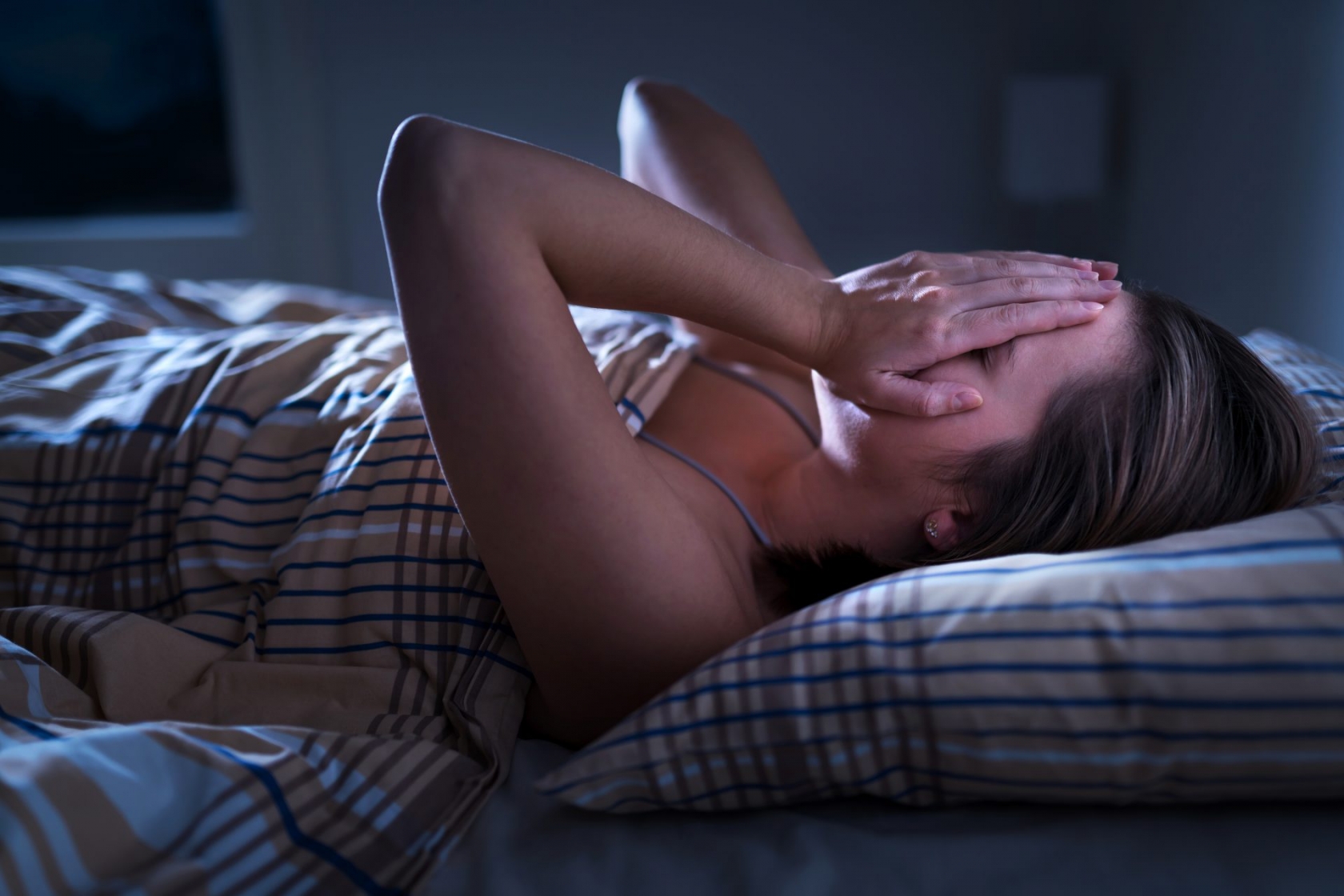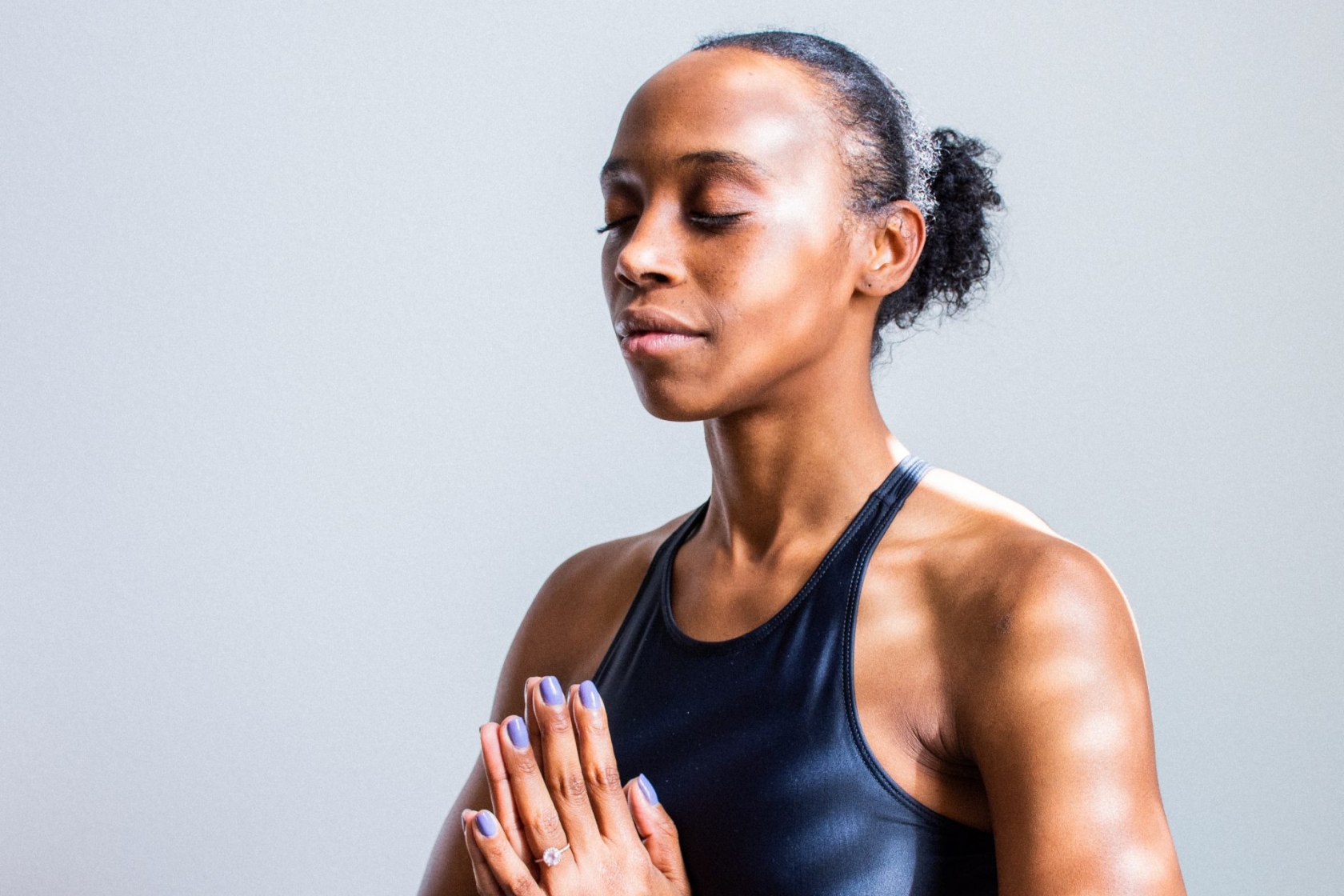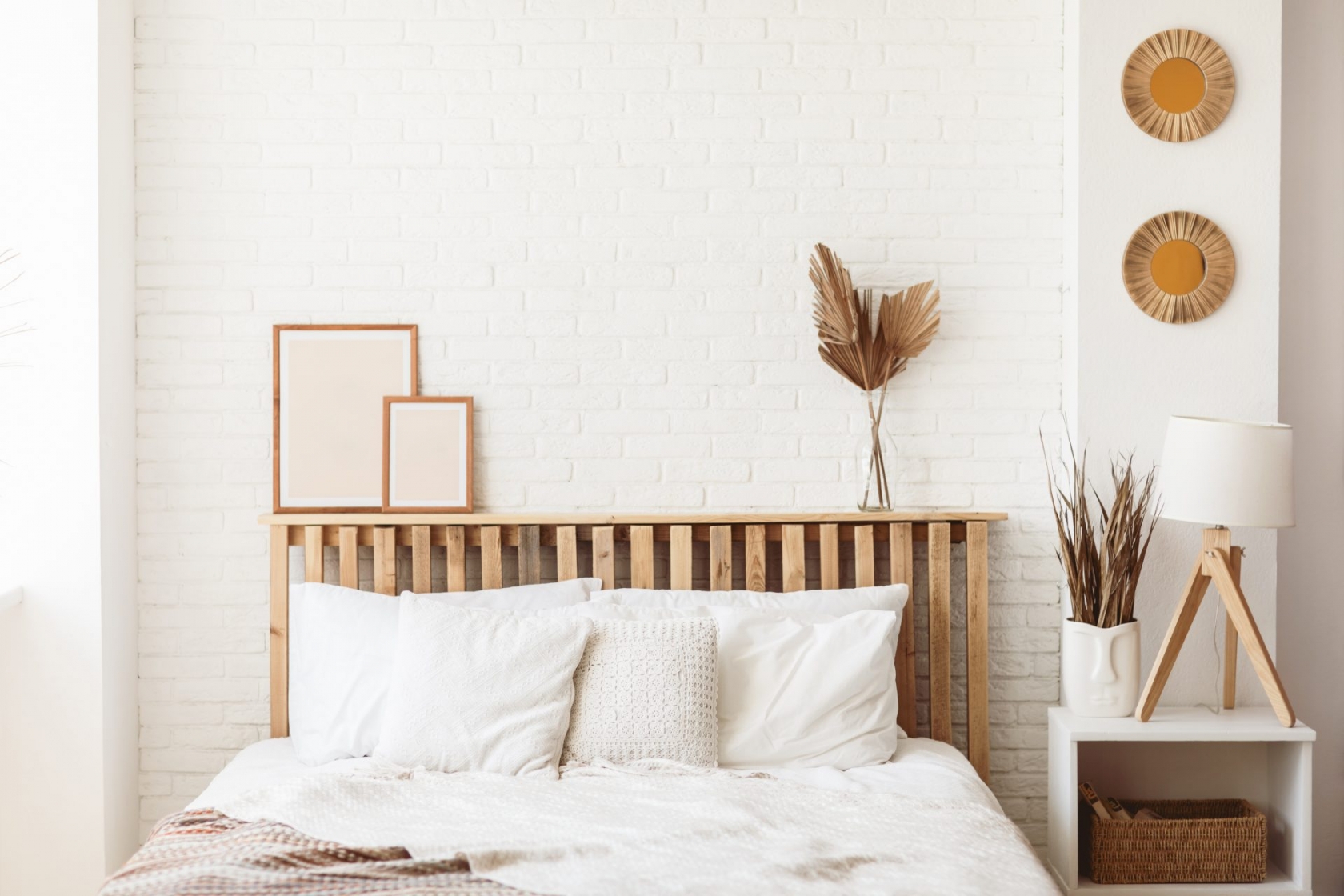
Welcome to Sleepless Nights, Stylist’s weekly series designed to help you put your Sunday night anxiety and worries to bed. This week, we’re exploring the phenomenon of ‘sleep anxiety’, and how to cope if you’re struggling with it.
If you’ve ever found yourself tossing and turning at 2am in the morning, you’ll know how frustrating not being able to get to sleep can be – especially when you start thinking about all the things you’ve got to do the next day.
However, while most people will have endured these kinds of sleepless nights, for people who struggle with sleep anxiety, this kind of late-night stress is a lot more common.
Known in extreme cases as somniphobia, sleep anxiety is typically defined as fear or anxiety around the thought of going to bed. While for some people sleep anxiety manifests as a very specific fear of falling asleep (commonly triggered by a traumatic incident related to sleep), one of the most common forms of sleep anxiety is concern or worry over getting enough sleep in order to be able to cope with the demands of the following day.
It’s one of the reasons why Sunday night anxiety can lead to such a poor night’s sleep – when you’re feeling overwhelmed about the prospect of the week ahead, the idea of not being able to get to sleep (and feeling tired and emotional as a result), can trigger additional anxiety.
Jemma Park, a sleep expert at peoplewhosleep.com, explains: “A common thought among sleep anxiety sufferers is that they are worried that they won’t be able to get the correct amount of sleep to cope with their next-day demands.
“The type of stress that you feel as you’re about to drift off may also stem from performance anxiety. If you’re constantly under pressure to deliver on a daily basis (be it at work or in your family), you may see sleep as an additional ‘needs to be perfect’ task.”

In this way, people with sleep anxiety may find themselves dreading going to bed – not because they fear the idea of being asleep, but because they’re worried about not getting enough sleep to function the next day. The irony of all this is that sleep anxiety can stop people from getting to sleep in the first place, creating a vicious cycle.
However, while sleep anxiety can become a very disruptive and debilitating condition, if you’re struggling, there are also a number of things you can do to manage sleep anxiety and bring some of your fears under control.
With this in mind, we asked Park to share some of her top tips for managing sleep anxiety, from the best ways to destress at night to how to overcome the dread of bedtime. Here’s what she had to say.
1.Focus on calming yourself down before bed

Instead of worrying about how much sleep you’re going to get or whether your sleep will be of good quality, try to focus all your energy on calming yourself down. This way, even if you don’t end up getting the ‘perfect night’s sleep’ you planned, you’re still giving yourself the best opportunity to drift off.
“You could try yoga, meditation, sleep music or journaling,” Park suggests. “The aim is to slow your heart rate to signal to your nervous system that it’s time to calm down.”
2. Say goodbye to technology
We all know how detrimental technology use can be for our sleep cycle but using our phones before bed can also exacerbate anxiety, too.
“Insomnia preys on mobile phone usage before bed,” Park explains. “Not only can the blue light keep you awake, but an innocent scroll can heighten anxiety in a flash.”
If you find yourself obsessing over how many hours of sleep you’re getting, it might be worth getting rid of any clocks in your room, too (although not if you use them for an alarm!).
3.Stop the mental to-do lists
If you spend most of the night worrying about how you’re going to get everything done the next day, it might be time you started writing things down.
“If you know you like to visualise what’s going on in your day, get out a pen and paper and write those plans down before bed,” Park says. “Knowing they’ve been documented can help to ease your running mind.”
4.Make your room a sleep sanctuary

To counteract any negative associations with your bedroom that you might have developed as a result of your sleep anxiety, it’s a good idea to try and make the space feel really special.
“Giving your bedroom a little comfort lift can create excitement towards getting to sleep,” Park explains. “Update your linen or add a scent diffuser – make it plush!”
5.Tire yourself out with exercise
If you’re struggling to shake feelings of wakefulness when you’re trying to get to sleep, try to rid yourself of expendable energy earlier in the day.
“Even though it may not feel like it, we all have expendable energy at the end of the day, and this can trigger wakefulness later on. Go for a jog, hit the stairs or do high-knees for as long as possible – if you can do this out in the sunshine, that’s even better, because this allows your body clock to synchronize.”
6.Avoid stimulants
Not only can stimulants (such as coffee, alcohol and sugar) keep you awake at night, but they can also fuel your anxiety.
“If you want to prioritise sleep you need to lay off the stimulants,” Park says.
She continues: “However, if your coffee addiction calls – you’re human, we get it – make sure it’s not after 2pm.”
7.Nap for productivity
If you had a really bad night’s sleep the night before, there’s no harm in having a short nap to help you feel more refreshed.
“If last night’s sleep anxiety session kept you awake, it’s OK to take a 15-20 minute power nap,” Park explains. “While napping can’t replace a good night’s sleep, it can help improve your mood and cognitive performance.”
If you or someone you know is struggling with their sleep, you can check out the mental health charity Mind’s website or visit NHS Every Mind Matters.
For confidential support, you can also call the Samaritans in the UK on 116 123 or email [email protected]
Images: Getty/Unsplash
Source: Read Full Article